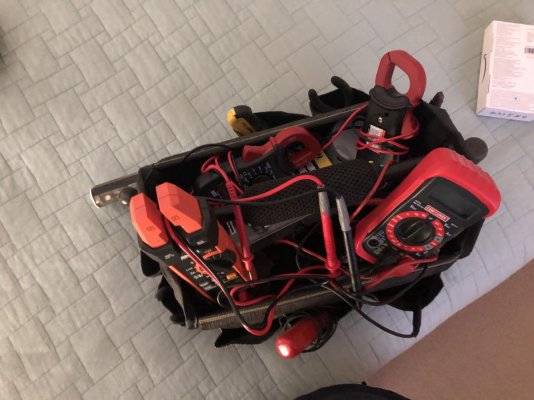healhustler
Guru
- Joined
- Oct 2, 2009
- Messages
- 5,198
- Location
- USA
- Vessel Name
- Bucky
- Vessel Make
- Krogen Manatee 36 North Sea
Hey Guys...Both my electrical bags are crowded with triples or quads of poor quality testers decisions. I’m kinda worn out from keeping alive these barely passable multi-meters that may be OK in the house but not so useful for some things specific to the boat. If one was to buy a good meter for his or her vessel, what would you choose out of the plethora of quality market options.


